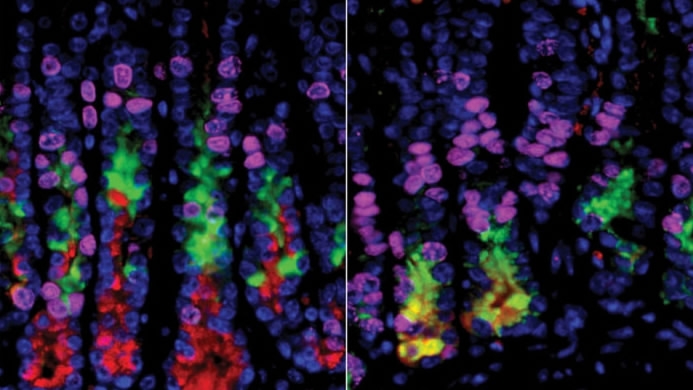
Health
13:02, 19-Dec-2017
Study sheds light on cancer origins

Researchers from Washington University in St. Louis found that, while rapidly dividing yet aberrant stem cells are a major source of cancer, mature cells also play a key role in initiating cancer.
Those cells have the ability to revert back to behaving more like rapidly dividing stem cells. When old cells return to a stem cell-like status, they can carry with them all of the mutations that have accumulated to date, predisposing some of those cells to developing into precancerous lesions.
"We have focused a good deal of attention on understanding the role of stem cells in the development of cancers, but there hasn't been a focus on mature cells," said senior investigator Jason C. Mills, a professor of medicine in the Division of Gastroenterology. "But it appears when mature cells return back into a rapidly dividing stem cell state, this creates problems that can lead to cancer."
The finding, from the stomach cells of mice and humans, also raises questions about how cancer cells may evade treatment.
Studying mice with injuries to the lining of the stomach, the researchers blocked the animals' ability to call on stem cells for help in the stomach. But even without stem cells, the mice developed a precancerous condition because mature stomach cells reverted back to a stem cell state to heal the injury.
Analyzing tissue specimens from 10 people with stomach cancer, the researchers found evidence that those same mature cells in the stomach also had reverted to a stem cell-like state and had begun to change and divide rapidly.
The researchers are now working to identify drugs that may block the precancerous condition by preventing mature cells from proliferating and dividing.
The study, which may upend the way researchers think about the origins of the disease, has been published online in the journal Gastroenterology.
(Top photo credit: Mills Laboratory via Washington University in St. Louis.)
Source(s): Xinhua News Agency

SITEMAP
Copyright © 2018 CGTN. Beijing ICP prepared NO.16065310-3
Copyright © 2018 CGTN. Beijing ICP prepared NO.16065310-3